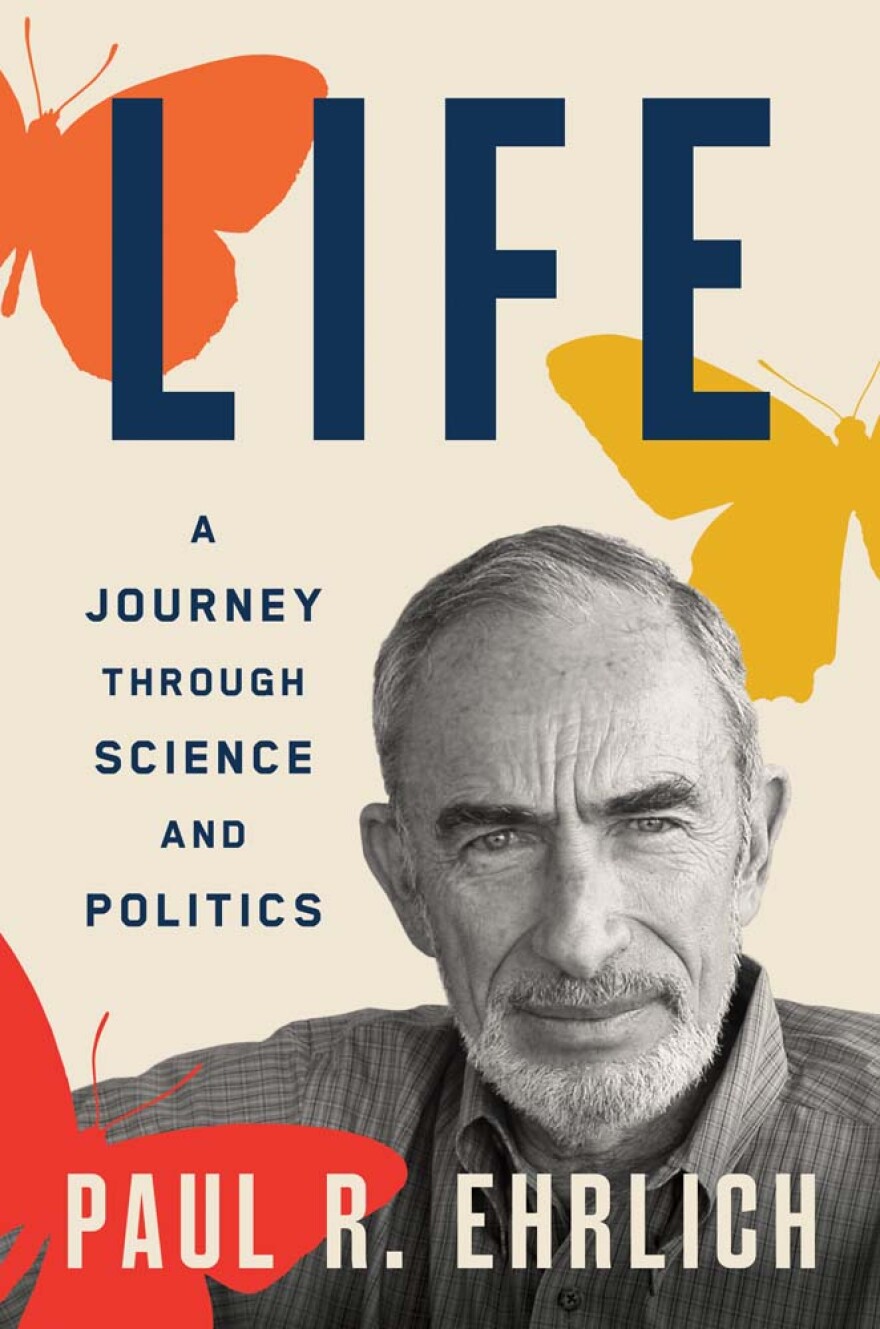Scientist and author Paul Ehrlich is perhaps best known for his controversial book about population growth published nearly 60 years ago. Now in his 90s, the professor emeritus at Stanford University has published a new book about his life and times. We asked Commentator Rex Buchanan to take a look.

(Transcript)
Like him or not, Paul Ehrlich is one of the most consequential people ever to get a degree from the University of Kansas.
The author of “The Population Bomb”, published in 1968, Ehrlich put the issue of overpopulation front and center in the country’s consciousness. Now, at age 91, he’s written a memoir entitled simply “Life,” published by the Yale University Press.
In the interest of full disclosure, I’ve met Paul Ehlrich but I don’t know him. I read “The Population Bomb” when I was in high school, right after it came out. It influenced my thinking, and the thinking of many in my generation, about population, family size, and the environment.
While lots of people know of Ehrlich, they may not know that he got a Ph.D. in entomology from KU in 1957, focusing mainly on butterflies. In the new book he says good things about several of his professors and colleagues here, especially Charles Michener, an expert on bees, and Ken Armitage, a biologist, both of whom have passed away.
But it’s not all love. Ehrlich is outspokenly critical of the segregation and racial attitudes he saw in Lawrence in the 1950s.
After KU, Ehrlich wound up as a professor at Stanford. He continued to study butterflies around the world, but broadened his interests considerably. He’s especially known in the biological world for developing, with botanist Peter Raven, theories related to co-evolution, or the way one species evolves in response to evolutionary changes in other species.
But it was “The Population Bomb” that brought him to the attention of the wider world. That book, based on lectures and written in only a few weeks, was an immediate best-seller and led to instant notoriety, including 23 appearances on the Tonight Show with Johnny Carson. Ehrlich wasn’t just a visible scientist, he was an activist, on a crusade to warn the world about overpopulation, degradation of the natural world, and natural resource depletion.
Not everybody liked the book. Even Ehrlich admits that he sometimes overstated problems or made predictions that were overly pessimistic. But the book itself, and the actions it inspired, may be one reason that some of his more apocalyptic predictions didn’t come true. People in some parts of the world heeded his warnings.
As important as that book was, Ehrlich devotes relatively little space to “The Population Bomb” in this new memoir. Instead he writes at length about his travels and adventures: studying butterflies and other organisms, flying, and scuba diving. He seems to have known just about everybody worth knowing in the scientific community. He name-drops famous researchers, from Jane Goodall to Carl Sagan, in ways that only a science nerd could love.
Ehrlich has plenty of critics. He’s written so much, made so many public appearances, been so vocal that it’s almost inevitable that he said some things that turned out to be wrong or misguided.
Still, there’s the constant movement, his irrepressible opinions, his energy and productivity, his passion. He can claim to have made a difference in the world, and KU can claim some of the credit for that.
####
Commentator Rex Buchanan is a writer and director emeritus at the Kansas Geological Survey. He was reviewing the new book by Paul Ehrlich titled Life: A Journey Through Science and Politics, published by Yale University Press.

